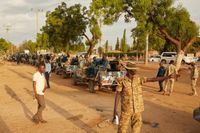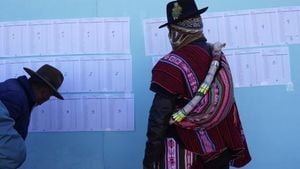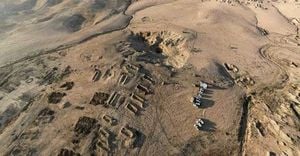South Sudan’s government has publicly and emphatically denied reports that it is in talks with Israel over the possible resettlement of Palestinians from Gaza, following a flurry of international media coverage and diplomatic speculation. The controversy erupted after several news outlets, including the Associated Press and The Times of Israel, reported that Israel was engaged in discussions with the East African nation as part of a broader push to facilitate mass emigration from the war-torn Gaza Strip.
On August 13, 2025, South Sudan’s Ministry of Foreign Affairs issued a formal statement, calling the claims “baseless and untrue.” The ministry stressed, “These claims are baseless and do not reflect the official position or policy of the Government of the Republic of South Sudan.” The statement urged media outlets to “verify their information through official channels before publication,” highlighting the sensitivity and potential consequences of such reports for both regional geopolitics and the humanitarian situation in Gaza, according to i24NEWS.
The denial followed a high-profile visit by Israeli Deputy Foreign Minister Sharren Haskel to South Sudan—her arrival on August 13 marked the first official visit by an Israeli government official to the country. While Israeli media speculated that the visit was connected to discussions about relocating Palestinians from Gaza, South Sudan’s foreign ministry insisted that no such negotiations had taken place. Haskel’s office, for its part, stated she did not intend to broach the subject of moving Palestinians during her meetings in Juba.
The Associated Press had reported, citing six people familiar with the matter, that Israel was in talks with South Sudan about the possibility of resettling Palestinians from Gaza. This followed similar resettlement proposals reportedly floated by Israel and the United States with other African nations, including Sudan, Somalia, and Somaliland. The reports suggested that, if implemented, the plan would involve transferring people from one conflict-ridden and famine-prone region to another—a prospect that has generated alarm among human rights advocates and international observers.
Israeli Prime Minister Benjamin Netanyahu has repeatedly expressed support for what he calls “voluntary migration” of Gaza’s population, a policy he has linked to statements by former U.S. President Donald Trump. In a televised interview with Israeli station i24 on August 12, Netanyahu declared, “I think that the right thing to do, even according to the laws of war as I know them, is to allow the population to leave, and then you go in with all your might against the enemy who remains there.” Notably, Netanyahu did not mention South Sudan in his remarks.
The idea of displacing Palestinians from Gaza has been met with fierce opposition from Palestinians themselves, as well as from much of the international community. Many see the proposal as a blueprint for forcible expulsion, which would violate international law and could amount to ethnic cleansing. Critics, including human rights groups, warn that Palestinians would likely never be allowed to return to Gaza, and that their mass departure could pave the way for Israel to annex the enclave and re-establish Israeli settlements—an outcome advocated by some far-right ministers in Netanyahu’s government.
Egypt, which shares a border with Gaza, has been especially vocal in its opposition to any forced transfer of Palestinians out of the enclave, citing fears of a refugee influx into its territory. Two Egyptian officials told the Associated Press they have been lobbying South Sudan against accepting Palestinians from Gaza, underscoring the regional sensitivities involved.
South Sudan’s own context adds further complexity. Since gaining independence from Sudan in 2011, the country has struggled to recover from a devastating civil war that killed nearly 400,000 people and left parts of the nation facing famine. The oil-rich country remains plagued by corruption, ongoing political instability, and a heavy reliance on international aid to feed its 11 million citizens. Just this year, South Sudan’s government ordered the arrest of Vice President Riek Machar, plunging the country deeper into political crisis.
South Sudan already hosts a large refugee population from neighboring conflicts and has previously accepted eight individuals deported from the United States under the Trump administration’s mass deportation policy. According to Joe Szlavik, founder of a U.S. lobbying firm working with South Sudan, the country is eager for the Trump administration to lift a travel ban and remove sanctions on certain South Sudanese elites. Szlavik told the Associated Press he was briefed by South Sudanese officials about the talks, though the government’s public stance remains one of categorical denial.
Edmund Yakani, a prominent South Sudanese civil society leader, voiced strong opposition to the idea of his country accepting Palestinians from Gaza. “South Sudan should not become a dumping ground for people,” he told the Associated Press. “And it should not accept to take people as negotiating chips to improve relations.” Yakani also highlighted the potential for local hostility, given the country’s history of conflict with the predominantly Arab and Muslim north—raising concerns that Palestinians could find themselves unwelcome in South Sudan.
Despite the denials from Juba, the persistent reports of secret talks have fueled speculation about the motivations of both Israel and South Sudan. Journalist Peter Martell, author of a book about South Sudan, observed, “Cash-strapped South Sudan needs any ally, financial gain and diplomatic security it can get.” The country’s relationship with Israel stretches back to its struggle for independence, when Israel’s Mossad reportedly provided support to South Sudanese rebels fighting the Arab-dominated government in Khartoum.
For Palestinians in Gaza, the prospect of resettlement—whether temporary or permanent—remains deeply contentious. Many Palestinians fear that leaving Gaza would mean relinquishing their claim to their homeland and enabling Israel to reshape the territory’s future. Even those who might wish to escape the current war and hunger crisis are unlikely to seek refuge in South Sudan, given its own instability and the risk of famine.
Meanwhile, the humanitarian crisis in Gaza continues to deepen. Since October 2023, the Israeli military has conducted a relentless offensive against Hamas in the enclave, killing over 61,700 Palestinians, most of them women and children, according to multiple sources including Bloomberg and BBC. In November 2024, the International Criminal Court issued arrest warrants for Israeli Prime Minister Netanyahu and former Defence Minister Yoav Gallant for alleged war crimes and crimes against humanity in Gaza. Israel also faces a genocide case at the International Court of Justice.
As the international community debates the legal, moral, and humanitarian implications of any potential mass relocation, South Sudan’s unequivocal denial highlights the immense challenges and sensitivities surrounding the future of Gaza’s beleaguered population. For now, at least, the official word from Juba is clear: no talks, no agreement, and no change to the status quo.





